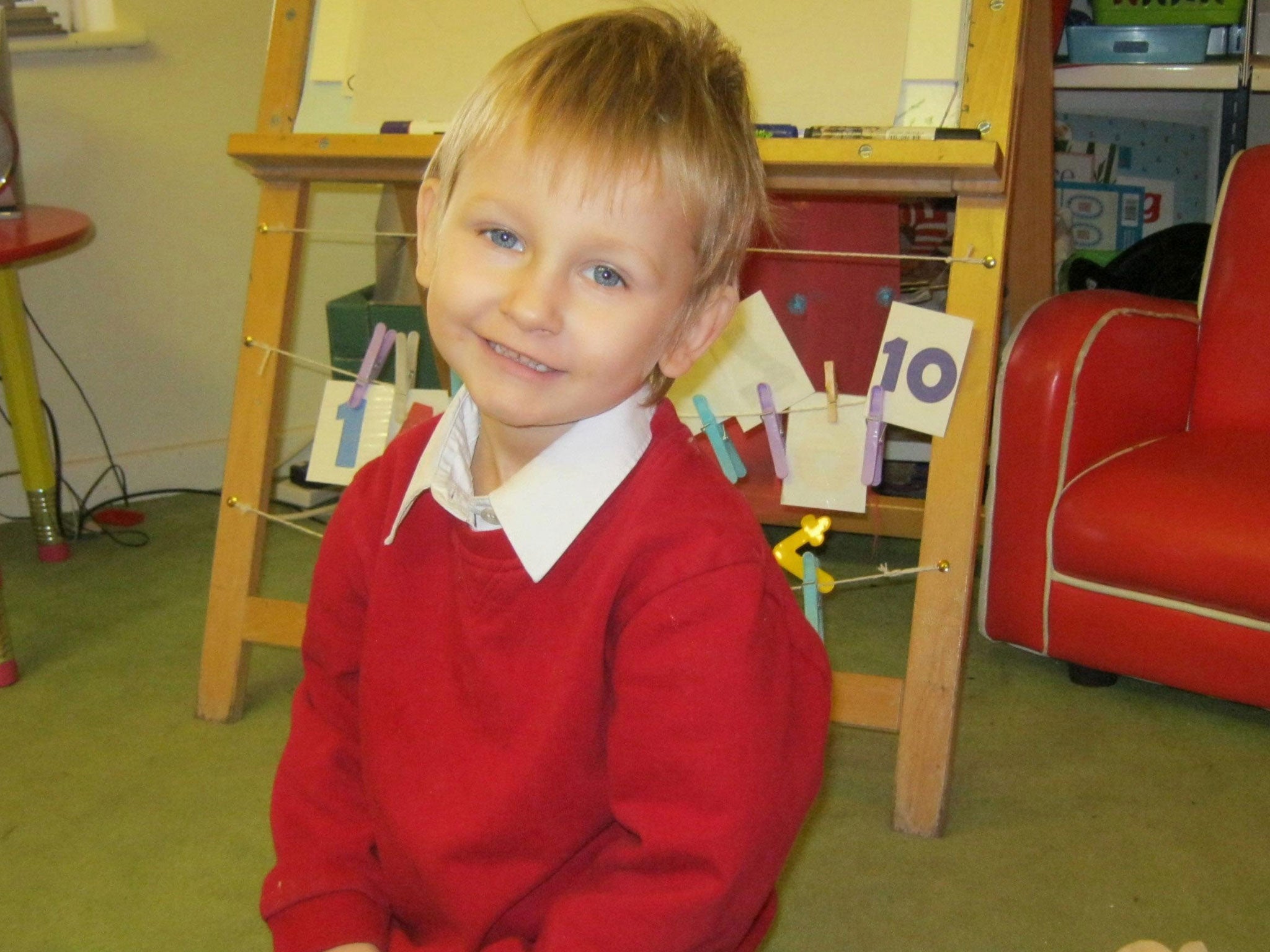Daniel Pelka: Ministers shun obligatory scheme for professionals to report abuse concerns
No new legislation needed as it was 'already clear that suspicions should be reported'

Demands for a new law compelling professionals to report concerns over suspected child abuse in the wake of the death of Daniel Pelka were rejected today by ministers and safeguarding experts.
More than 50,000 people have signed a petition calling for urgent legislation it is claimed could prevent a repeat of the tragedy in which multiple opportunities that might have saved the four-year-old's life were missed.
Similar laws already exist in other countries including Australia, the United States and Denmark imposing a legal duty on teachers, social workers, police and doctors to report abuse or face the consequences.
But children and families minister Edward Timpson said no new legislation was needed as it was already "crystal clear" that those suspecting violence or neglect should contact social care.
"Other countries have tried mandatory reporting and there is no evidence to show that it is a better system for protecting children. In fact there is evidence to show it can make children less safe," he said.
Daniel's mother and stepfather Magdelena Luczak and former soldier Mariusz Krezolek, originally from Poland, were jailed for life earlier this year for his murder.
A serious case review by Coventry Safeguarding Children Board published today found that police received 26 reports of domestic violence at the family home in the city whilst teachers failed to spot signs that he was being beaten and starved.
Social workers proved too willing to believe his manipulative and aggressive parents' claims that his injuries were the results of accidents and a paediatrician did not link Daniel's dramatic weight loss with neglect.
The report claimed that the child had been "invisible" to the people responsible for protecting him and said there had been a fatal lack of professional curiosity and failure to share information.
Home Secretary Theresa May said there should be greater emphasis on saving children trapped in violent households. "I think one of the issues that the Daniel Pelka case raises is that when people are looking into issues of domestic violence, making sure we look at how those incidents affect children," she said.
Agencies involved in Daniel's care apologised for the failure to spot the signs of abuse and act.
Paula Barrow, a mother of two from Manchester who set up the on-line petition demanding the new law which was delivered to Downing Street ahead of the publication of the serious case review, said it was imperative to act.
"It is impossible for credible child protection to be delivered without the support and protection of the law, in order that staff in regulated activities are required to act in the interests of children in distress without hesitation or deliberation, without fear of recrimination or reprisal," she said.
Ms Barrow claimed that new guidance following a consultation by the Department for Education would weaken the framework in which social workers and others were required to act.
Amy Weir, chair of the Coventry Safeguarding Children Board and David Simmonds, chair of the Local Government Association's children and young people board, backed calls for a national debate on the issue of mandatory reporting.
Meanwhile, children's charities expressed their frustration that yet another serious case review following the deaths of Baby P - Peter Connelly - and Victoria Climbie in which mistakes had led to the horrific deaths of children.
Dame Clare Tickell, chief executive of the Action for Children said "time and time again" the same lessons were being drawn from serious case reviews following the deaths of abused and neglected children.
The British Association of Social Workers (BASW) questioned the effectiveness of the review process and said child protection workers were not being given the opportunity to learn the lessons from such cases. It said one in four social workers claimed they did not get to read the findings of a serious case review when they were published.
David Tucker, head of policy at the NSPCC, said: "Sadly, more reporting and more legislation would not, in our opinion, have saved Daniel Pelka. There were dozens of reports and meetings by various agencies and people. What he needed was someone to see the bigger picture and take decisive action to protect him."
'A public health concern': WHO abuse figures
More than 18 million children under the age of 15 in Europe are abused and 852 of them are killed every year, according to the World Health Organisation (WHO).
The deaths are only the “tip of the iceberg” with up to 29.1 per cent of children suffering emotional abuse and 22.9 per cent suffering physical abuse, the European report on preventing child maltreatment concluded.
Parents who are single, poor and badly educated are among the most likely to maltreat their children, the report said. It also found a strong association between the levels of abuse and the consumption of alcohol and drugs in families.
Zsuzsanna Jakab, WHO Regional Director for Europe, said: “It is time to recognise child maltreatment as a public health concern, and not solely a criminal justice and social issue.
“Child abuse is preventable through a mainstreamed public health approach, an opportunity that we cannot afford to miss.”
Join our commenting forum
Join thought-provoking conversations, follow other Independent readers and see their replies
Comments